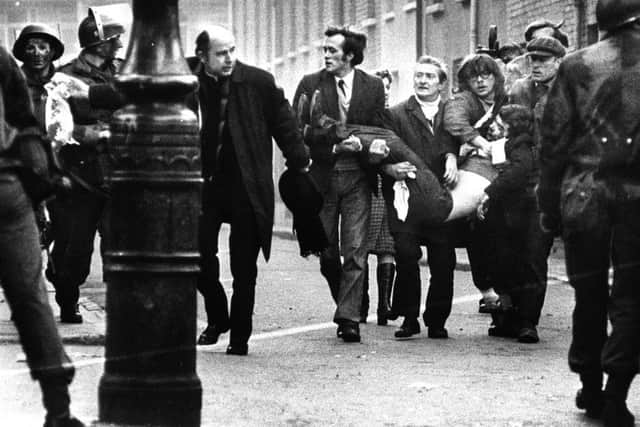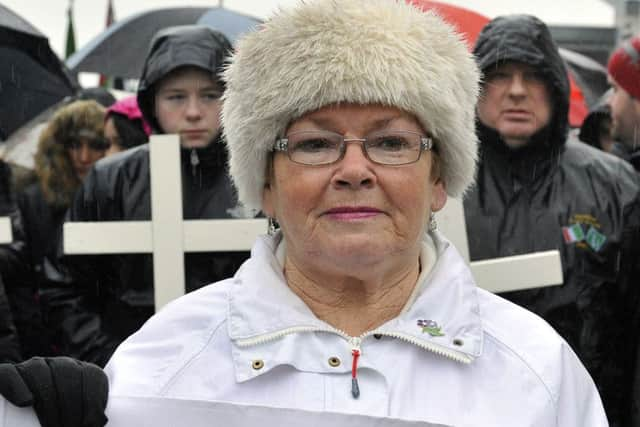Bloody Sunday: Soldiers to learn their fate on prosecutions
and live on Freeview channel 276
The announcement will be made by the Public Prosecution Service (PPS) at the Guildhall, in the heart of Londonderry city centre, at around 11am.
This follows a murder investigation started by the PSNI in 2010 after the longest and most expensive public inquiry in British history – the Saville Inquiry – found those killed on Bloody Sunday were innocent.
Advertisement
Hide AdAdvertisement
Hide AdThe prime minister at the time, David Cameron, apologised on behalf of the government and said the killings were “unjustifiable”.


Thirteen people died on Bloody Sunday when soldiers opened fire during a civil rights march. Another 15 were injured, one of whom died five months later.
A total of 20 suspects were interviewed under caution as part of the PSNI investigation – 18 soldiers and two alleged Official IRA members. One of the soldiers has since died.
The Ministry of Defence, meanwhile, has said it will cover soldiers’ legal expenses. A letter signed by Defence Secretary Gavin Williamson states that legal costs will be covered “without limit of time or cap on expenditure”.
Advertisement
Hide AdAdvertisement
Hide AdKate Nash, whose brother William was shot dead on Bloody Sunday, said she is “confident” prosecutions will be announced.


DUP MP Gregory Campbell, meanwhile, stressed the need to take into account the “mindset” of the soldiers amid the wider context of violence at the time in any court case.
“The most crucial aspect for me is one that I have maintained assiduously since the start of Saville,” he said.
“Did the Saville Inquiry take into account the state of mind and the expectation level of soldiers who were deployed into the Bogside on that day? Did they expect gunfire, petrol bombs, nail bombs? Was that a reasonable expectation? Will the court in any case that might follow fail to take account of the violence that surrounded the area beforehand?”
Advertisement
Hide AdAdvertisement
Hide AdHe continued: “The other aspect is the length of time that has passed. People will want to know how a court of law is going to deliberate on the actions that occurred almost 48 years previously with any degree of accuracy.”
Investigators in the probe launched by the PSNI in 2010 recorded 668 witness statements as well as acquiring numerous photographs, video and audio evidence.
The investigation generated 20,000 pages of information, bringing the total amassed by the various investigations over nearly five decades up to 125,000 pages of evidence and reports.
Ms Nash said: “You can’t know for sure but I am fully confident that we will get the right decision. And really what are we asking for? We’re asking for something that anybody in England or Scotland would ask for – we’re asking for justice. You cannot put soldiers above the law.”
Advertisement
Hide AdAdvertisement
Hide AdMeanwhile, the judge who led a public inquiry into the events of Bloody Sunday has said it was “not a question of prosecutions”.
Lord Saville, whose inquiry into Bloody Sunday ran from 1998 until 2010 and cost around £200 million, told the BBC its purpose was “to try to find out what happened”.
He said: “Overall the campaign for Bloody Sunday originally was for an inquiry to find out what happened and why, rather than a question of prosecutions.”
Lord Saville added: “We were there to find out what happened rather than investigating criminal offences.”
DUP MP Gregory Campbell said Lord Saville’s comments show a “remarkable degree of naivety”.